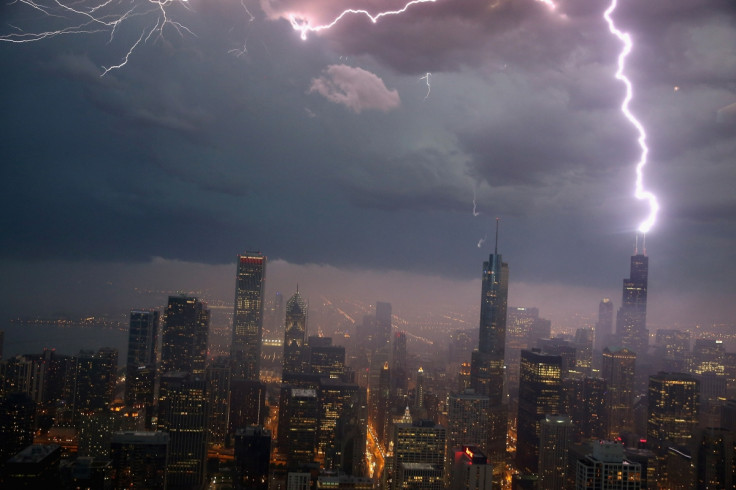Moody's warns market fears will spill over into global economy in doomsday 'self-fulfilling' prophecy warning

Slow economic growth and markets fears could create a downward spiral feared to dent the world's biggest economies, Moody's has warned.
The credit rating agency issued a doomsday warning on Thursday (18 February) that low confidence in the global economy could be a "self-fulfilling" prophecy. The market crisis could directly affect the richest economies, Moody's said.
"Investors may start to price in the possibility of lower economic growth and returns, which could become partly 'self-fulfilling' via negative wealth effects and tighter financing conditions," the Moody's report read. "The impact on the global economy would be amplified if losses on trading portfolios and financial assets more generally led banks to tighten credit standards."
The investors service also said that downside risks from the commodity crisis and uncertainty of emerging economies will weigh down economic growth for at least the next two years. The G20 economies will grow by a mere 2.6% in 2016 and 2.9% in 2017, the Moody's experts forecast.
"The negative impact of commodity producers' adjustment to persistently lower prices, a marked slowdown in China's imports and tighter financing conditions for some emerging markets will outweigh positive factors, such as accommodative monetary policy in Europe, Japan and in the US," Moody's said in the report.
Global equities have still not recovered from the global market rout which was accelerated in August 2015. On Monday 24 August 2015, dubbed Black Monday, China's stock market the Shanghai Composite, plummeted a historic 8%.
Concerns about the state of emerging markets such as China and Brazil caused a new era of financial insecurity, just eight years after the banking crisis of 2008.
The Shanghai Compoiste has lost almost a quarter in equity value since Black Monday, and few stock markets have recovered to Pre-August 2015 levels. The NASDAQ has fallen almost 11%, the Dow Jones Industrial Average 6%, while the UK's FTSE 100 has lost more than 8%.
Investors are also concerned about the oil price crash, which saw brent crude plummet to 2003 lows in January 2016, having lost more than 74% since its recent peak in mid-2014.
Lower commodity prices have already led to Moody's downgrading Brazil, Russia, Saudi Arabia and South Africa's credit rating. The plummet in value of natural resources, caused by oversupply and a fall in demand because of the global manufacturing slump, also forced big commodity companies to cut tens of thousands of jobs.
Apocalypse?
The doomsday warning from Moody's follows panicky forecasts by the Royal Bank of Scotland (RBS) and Societe Generale about the global markets and economies. On 8 January, RBS warned its clients that 2016 could be a "cataclysmic year", going as far as predicting stock values could fall by a fifth and oil prices could plunge to $16 (£11, €15) a barrel, even though crude has not dropped below the $30 threshold for 12 years.
On 20 January, William White, the chair of the Organisation for Economic Co-operation and Development (OECD)'s review committee, and a leading monetary theorist, said that global debts have built up to such an extend that the world is facing another financial crash, worse than the one in 2007-08.
© Copyright IBTimes 2025. All rights reserved.






















